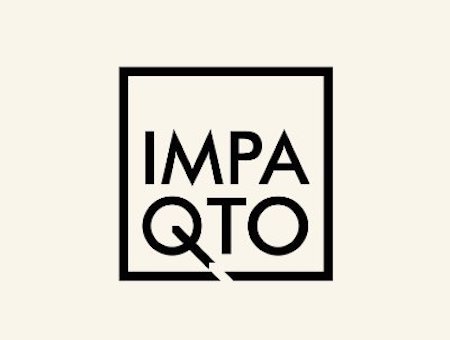IMPAQTO Capital is an investment fund supporting social entrepreneurs in the Andean region through capital, support, and connections.
Michelle Arevalo of IMPAQTO Capital spoke with Jessica Kantor on April 12, 2023. Click here to read the full conversation with insights highlighted.
Jessica Kantor: Could you start by introducing yourself, your role in your organization, and the problem that your work addresses?
Michelle Arevalo: I am Michelle Arevalo and I am one of the co-founders of IMPAQTO Capital. IMPAQTO Capital is a fund that invests in missing middle companies in the Andean region of Latin America. We’re helping social entrepreneurs solve problems at scale in a market, which has been overlooked by most investors over the years.
Jessica Kantor: Can you describe exactly how you are responding to that issue?
Michelle Arevalo: I think that how we came to the solution is the how in itself. We saw that there were many people trying to address the problem of not enough capital going to entrepreneurs. But what we actually did was actually listen to entrepreneurs. We did studies, we did convenings, and we interviewed people. We worked with entrepreneurs for about six years, very closely with an accelerator, before we realized that what we needed was flexible capital. Much less sexy, but a far more practical impact investment fund. We deploy revenue-based finance to companies that are in the revenue stage, between $100,000 and $1 million. That way, we bridge the gap between the type of funding that is available. Most impact investment comes in at over $1 million and microfinance, which comes in at under 50,000. We’re bridging this gap so that these social entrepreneurs that have fantastic ideas and innovations can reach scale, but not on the backs of their personal finance necessarily, but through capital and also structured support.
Jessica Kantor: How are you finding these entrepreneurs, one, to study, but then, two, to fund?
Michelle Arevalo: We have been working at this for about a decade, and ultimately, we’re community builders. We’ve built the community of entrepreneurs, and IMPAQTO, the parent company of IMPAQTO Capital, is actually a fantastic convener, so we have five different co-working spaces in the region where entrepreneurs naturally flow to. We have a social business accelerator that we run in conjunction with Google for Startups, and we have 300 graduates from there, so we find them there, but we also make an effort. We also have been able to find funding to do what we call diversity outreach, scouting trips, so that we go out and look for entrepreneurs that nobody else has seen yet, or maybe that are underestimated because they’re either from a different background, don’t come from the right universities, or maybe are from outside of capital cities. We make sure that we tap into our network, but we are also casting a wider net.
Jessica Kantor: That sounds like a very distinctive approach, building the community and finding the people who didn’t necessarily know that they were entrepreneurs. Are there any other approaches that are distinctive to what you guys are doing?
Michelle Arevalo: I think that it’s in everything we do. It’s already very rare to see female-led community building efforts. It’s very rare to see female-led investment funds, period. But then, doing impact investing, I think we’re breaking many barriers here. We’re based out of Ecuador. The Andean region is not necessarily known for having a vibrant impact investment scene. Most people who meet me are meeting me for the first time. A local impact investor that is female already crushes a lot of existing stereotypes. Another way that we are a little bit countercurrent is that we have chosen not to do a venture fund.
Within a broader context, venture funding is everywhere, in pop culture and what entrepreneurs aspire to be, so you could have this really amazing company that is doing quinoa byproducts and superfoods, changing the lives of hundreds and hundreds of families of agricultural workers, and then trying to fit into the mold of Steve Jobs because that’s what Hollywood is telling us a startup entrepreneur is. We’re trying to change the narrative by saying, “Venture capital is not necessarily built for your type of company, and you may actually build a company that is longer lasting, more rooted in your community.” It grows at a very human pace if you take revenue-based finance. It’s probably not as sexy, probably not on Netflix yet, but it’s actually a different way to think about how you want to grow, so that’s also unique about how we do things.
Jessica Kantor: How are you measuring success?
Michelle Arevalo: As a fund, we are measuring success in terms of the IRR [Internal Rate of Return] that we can offer our investors. That’s one. We’re measuring success in terms of how much impact we are able to facilitate through the growth of these companies. Of course, we’re always measuring how many families are obtaining employment through a venture fund and then how many families at the end of the five to eight years that they will be working with us, so we are looking at that differential. We are starting to think a little bit more about how we might capture the systemic impact that having a first fund creates in the ecosystem.
We’re already observing, for example, that having local investors in the Andean region is leveraging other investors from outside the and Andean region that probably are thinking the region is too small to set up our local office, to become co-investors, because knowing that you have local co-investors reduces their risk and allows us to maybe syndicate the due diligence, tap into local networks of knowledge, regulations. All these things are different ways in which we’re being an acupuncture point. We are a very small fund in a very small region, but if we get this one thing done, then all these other opportunities start becoming unlocked for the entire ecosystem. We’re not really capturing that in any way aside from anecdotally, but I think that the impact is very palpable of having an impact investment fund in the Andean region.
Jessica Kantor: Do you have any evidence or examples that can share the progress that you have made or that illustrate the impact of your work?
Michelle Arevalo: Yes. I can tell you a little bit about one of our latest investments. We’re going to be investing in a GenderLab. It’s a company that is set up in Peru. The founder is a lawyer that comes from a very strong background of doing trainings to prevent sexual harassment. During the pandemic and the #MeToo movement, it was not just the United States that had business people grappling with how to handle the very real problem of sexual harassment in the workplace. There were also business leaders across Latin America. The solutions that they were presented with were very structured, templatized ways to handle sexual harassment in the workplace, but from North America. Of course, there’s huge cultural differences because it was different enough that it became a wall, and a lot of business people were unable to find a solution.
GenderLab has created a solution that through the use of data and surveys, they can actually do heat mapping for large companies to show the places, departments, or locations where you have a higher risk of people suffering from sexual harassment within the workplace, and then attend to those through preventative measures. It could really change the lives of millions of women in Latin America who are taking on very real physical risks to go to work, to ride to work, or to even work at the workplace itself. In that sense, funding GenderLab to open in three more markets in Latin America will, of course, allow us to help them expand their reach and their impact.
Jessica Kantor: I love that example. Do you have any other examples of someone or something that you invested in early on and now it has made dramatic progress in the community?
Michelle Arevalo: That’s a good question. Early on is relative because we don’t do venture capital, so you won’t see any big, drastic changes because we believe in a human pace of growth. But I could tell you about Novulis, for example. We didn’t invest in them through our fund. We actually invested in them through our other grant-making platform that we have. But we believed in them because we saw this great potential in doing mobile clinics specifically on dental care. It’s a privilege, and people think, “Oh, dental mobile clinics. That doesn’t make sense.” But actually, in certain contexts, oral care can actually be the pathway for a lot of problems. For example, if you don’t really brush your teeth, you’ll suffer from stomach infections and digestion infections all your life. For some kids, that might actually mean growth problems, nutritional problems, brain development problems. In those contexts, oral care becomes not a privilege but a necessity. We invested in their growth to buy an additional mobile clinic and to get more connections. That was pivotal for them, not only in terms of growing the number of people that they can see but also being able to tap into bigger contracts, which then allowed them to get IADB [Inter-American Development Bank] grant funding. In some situations, the organizations that we invest in and that we really believe in, can unlock other kinds of blended capital in order to be able to grow the way they should be.
Jessica Kantor: Every social innovator learns as much from what works as from what doesn’t. What are some issues or some limitations that you faced early on that you learned from, that others would be able to learn from as well?
Michelle Arevalo: We had a lot of false starts in thinking about how to bring capital to entrepreneurs. At first, we really did think that it was a matter of, “Oh, there’s not enough investors.” So we decided to go out there and find all these investors from abroad to bring them. We did these trips and built an entire conference for investors to come meet the entrepreneurs locally. We very quickly realized that it was not a matter of there not being enough investors. Then we thought maybe pushing the startups a little bit harder so that they do better and are more attractive to the existing investors.
We did a couple of years of that, and we felt like, talking to founders, they were exhausted and like, “How am I supposed to do this? I just mortgaged my grandma’s house. What else are you expecting of me?” That’s when we realized everything is wrong with this. You should not have to put your grandmother’s livelihood at risk to fund your dream. We need to be able to do better as a community. That’s when we decided, “Okay, we need to get into investing ourselves. This cannot be the solution.” We learned to always listen to the entrepreneurs first. That made a big difference.
Jessica Kantor: Maybe you don’t have the issue of raising funding that a lot of other organizations have, but aside from the issue of raising funding, which is something that a lot of people do face, are there any other challenges that you’re currently facing? Any limitations?
Michelle Arevalo: I certainly face the issue of raising funding. In the end, we’re a fund. I was looking for limited partners for investors all the time. It’s not easy to walk into some business leaders’ big office and say, “Hey, I’m probably the age of your daughter. I’m female, and you do not really understand what impact investing is. Would you write me a check?” There’s just so many layers of how people understand you as a potential investor that we have to be able to bypass. I’ve had to let go of whatever ideas I had about how private I want to be in my social media or whatever just because I understand that for me to do my job better, I need to actually build a personal professional brand so that I can actually reach these circles that were never available to me before in a different way.
Not because I can avoid having had to spend the first 45 minutes of every meeting being like, “Nope, I’m not someone’s granddaughter. You all know me from the yacht club. You don’t know me from anywhere else. Actually, there’s no reason for you to know me other than for the fact that I’m an impact investor.” Investing some time and effort into building a public professional brand has been a big hack, I should say, that I share with a lot of colleagues and friends.
I think that showing up as an authentic person with funders is actually very helpful. Connecting as a human being, not just as a transactional situation where you give me funding and I give you impact, also helps, and I think that investing in longstanding relationships as well, those are definitely my three tips. That doesn’t mean that small impact investment funds don’t need everyone’s support. I think that we all need to support each other to understand how to better channel this incredible capital that is out there to the right places and the right founders.
Jessica Kantor: Is your organization working towards advancing system-level change?
Michelle Arevalo: Absolutely, yes. As I mentioned earlier, we think of ourselves as the acupuncture fund. A lot of people come to me like, “Your fund is so cool, why so small?” Because we don’t want to be the solution for the Andean region. I could raise a $100 million fund, and it would sound super sexy. We’re a small $2 million fund because we understand that is how much we need to be able to have enough success stories to trigger and to catalyze a lot of these other interventions that are just waiting for those first success stories. So absolutely, we think of ourselves as a systemic change fund.
Jessica Kantor: How specifically are you working to make that systemic-level change? Are you working with the government in any way? Are you helping write legislation? What are you doing?
Michelle Arevalo: We have done some of that. We were part of the group of people that were supporting the writing of the new B Corp law so that there’s a legal status for a company that wants to be a benefit corporation. That is moving along across the Andean region. It’s law in Ecuador now. We actually think of systemic changes, not just as public policy, but about actually catalyzing collaboration across silos. We definitely see the philanthropic and impact investment silo happening very clearly. But in the end, it’s all just capital that’s there to catalyze impact, so how can we get them to work together a little bit more? That’s why we built this fund in the middle, to make that flow.
We also see very big silos between global and local. It’s gotten worse with the pandemic, so we’re constantly looking for ways to equalize the playing field and make sure that a lot of these global actors here in the Skoll World Forum understand that they’re only getting to see one representative of maybe hundreds of incredible local leaders that are doing incredible things. In that way, we’re constantly doing our annual impact investment event. We have a fantastic newsletter that’s very well-read by a lot of international actors. We’re holding these conversations on a monthly level, making sure that the dialogue continues. I think that there are probably other, more informal ways to do systemic change beyond just changing laws.
Jessica Kantor: What do you think is needed from other actors or partners that you are working with on that systemic level change? Is there anything that maybe isn’t happening that is needed from them?
Michelle Arevalo: I think maybe it’s already happening a little bit because of the context, but for those who have been in the venture investment world, it takes a little bit of a leap of faith that there could be different instruments for investments beyond just venture capital. Because everyone wants to fund the next unicorn, what is needed is this openness of mind to rethink what a good company is. It’s not just a unicorn. You have this zebras, not unicorns debate. We think about zebra companies as very viable, amazing companies through which to drive impact or scale is not everything. Actually, depth is what really deserves investments, so that’s what we’re missing, more voices to be able to say, “I was also thinking venture is everything, but hey, look at all these other ways to do investment. Why don’t we do it the old way?”
Jessica Kantor: How do you see your work evolving over the next five years?
Michelle Arevalo: I see that maybe IMPAQTO Capital will transition into supporting other new impact fund managers, connecting them to more networks that have been very supportive of us. I think that the landscape will change if we start having more local fund managers come to these global forums because we’ll find that we will get rid of a type of intermediary that doesn’t have all the incentives, but local fund managers probably do have that incentive to continue to be very horizontal in the way they make those connections and the way they assign capital.
Jessica Kantor: Is there anything else that you want to add to this conversation that others can learn from that we didn’t already speak about?
Michelle Arevalo: I think that anyone that’s doing things in frontier markets or strange markets might find this interesting. Our road that we’re traveling is probably very similar to any other smaller market country in a region surrounded by large markets. In our case, we saw that all the capital was going to Mexico and Brazil, and there’s 17 other markets in the middle that are just so small. Thinking through how the size of markets can impact the way people get prioritized, and I’m saying real people get prioritized, can be a really interesting thread to maybe connect more south to south cooperation. Maybe we have a lot in common with Vietnam, or maybe we have a lot in common with Cameroon. There are learnings that could go beyond the more sub-regional learning of Latin America.
Jessica Kantor: Wonderful. Thank you so much for chatting with me.
Click here to read the full conversation with insights highlighted.
Jessica Kantor is an independent journalist specializing in health, human rights, and social impact. Her work can be found in Fast Company, Healthcare Quarterly, The Las Vegas Review-Journal, and others. She is a living kidney donor.
* This interview has been edited and condensed.
Learn about other funders of social entrepreneurs.







